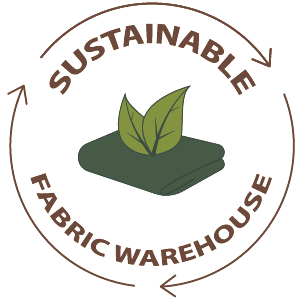- ORGANIC COTTON WOVEN
- ORGANIC COTTON WOVEN VOILE
- ORGANIC COTTON WOVEN CAMBRIC
- ORGANIC COTTON WOVEN SHEETING
- ORGANIC COTTON WOVEN POPLIN
- ORGANIC COTTON WOVEN TWILL
- ORGANIC COTTON WOVEN CANVAS
- ORGANIC COTTON WOVEN CORDUROY
- ORGANIC COTTON WOVEN FLANNELS
- ORGANIC COTTON WOVEN MUSLIN
- ORGANIC COTTON WOVEN DOBBY
- ORGANIC COTTON WOVEN SEERSUCKER
- ORGANIC COTTON KNITTED
- ORGANIC COTTON KNITTED SINGLE JERSEY
- ORGANIC COTTON KNITTED SINGLE JERSEY LYCRA
- ORGANIC COTTON KNITTED INTERLOCK
- ORGANIC COTTON KNITTED RIB FABRIC
- ORGANIC COTTON KNITTED WIDE RIB FABRIC
- ORGANIC COTTON KNITTED PIQUE FABRIC
- ORGANIC COTTON KNITTED BRUSHED FLEECE FABRIC
- ORGANIC COTTON KNITTED TERRY FABRIC
- ORGANIC COTTON KNITTED TEXTURED FABRIC
- ORGANIC COTTON KNITTED SINGLE JERSEY LYCRA JACQUARD
Recycled cotton is a sustainable fabric made from cotton waste, pre-consumer and post-consumer. This recycling process reduces the environmental impact of traditional cotton farming and gives new life to textile waste.
Recycled Cotton
Recycled cotton is made from discarded cotton rich textiles, fabric offcuts from manufacturing or used clothing. The recycling process starts with the collection of these materials, then they are sorted by quality and colour. The sorted fabrics are shredded into smaller pieces which can be processed mechanically or chemically to extract usable fibres.
Recycling Methods
- Mechanical Recycling: This is the most common method, where fabrics are physically shredded into fibres without using chemicals. This method is environmentally friendly but often results in shorter fibre lengths which can affect the durability and quality of the final product.
- Chemical Recycling: Involves breaking down cotton textiles into their chemical components through various processes. This method can produce higher quality fibres but is less common due to its complexity and environmental impact.
- Most recycled cotton comes from pre-consumer waste, offcuts from garment production. Post-consumer recycling involves collecting discarded clothing and household items which can be more labour intensive as you need to sort and separate different materials.
Types of Recycled Cotton Fabrics
Recycled cotton is available in various fabric types.
Woven Fabrics
- Voile: Lightweight and sheer, for curtains or summer garments.
- Cambric: Fine, closely woven for shirts.
- Sheeting: Durable and versatile for bedding or home textiles.
- Poplin: Smooth and slightly lustrous for shirts and dresses.
- Twill: Diagonal weave for trousers and jackets.
- Canvas: Heavyweight for bags and outdoor gear.
- Corduroy: Soft and textured for winter garments.
- Flannel: Warm and fuzzy for shirts or pyjamas.
- Muslin: Lightweight and breathable for draping or base layer.
- Dobby: Small geometric patterns for texture in garments.
- Seersucker: Crinkled texture for warm-weather clothing.
Knitted Fabrics
- Single Jersey: Stretchy for T-shirts.
- Interlock: Thicker knit for more structure than single jersey.
- Ribbed Fabrics: Elastic for cuffs and collars.
- Brushed Fleece: Soft and warm for sweatshirts and loungewear.
- Terry: Loop-pile fabric often used in towels or casual wear.
- Textured Fabrics & Jacquard: Intricate designs and patterns.
Benefits of Recycled Cotton
- Environmental Impact: Reduces water usage (up to 2,116 litres saved per kg), CO2 emissions (1.73 kg saved) and use of pesticides or fertilizers associated with conventional cotton farming.
- Waste Reduction: Diverts textile waste from landfills, contributing to a more sustainable textile industry.
- Biodegradable: Unlike synthetic fibres, recycled cotton is biodegradable, lowers long-term environmental impact.
- Versatility: It can be blended with other fibers to enhance durability while maintaining a lower environmental impact.
Sustainable Fabric Warehouse
Recycled cotton presents a sustainable alternative to traditional fabrics. Its diverse range of applications—from casual wear to home textiles—coupled with its reduced environmental footprint makes it a valuable choice for eco-conscious consumers. Looking to buy recycled cotton varieties of fabrics at an affordable rate, browse our wide range of collections today.
Partner with SFW for Your Recycled Cotton Needs.
Contact us today for wholesale and bulk orders. Together, let’s build a more sustainable, eco-friendly future with SFW fabrics!

